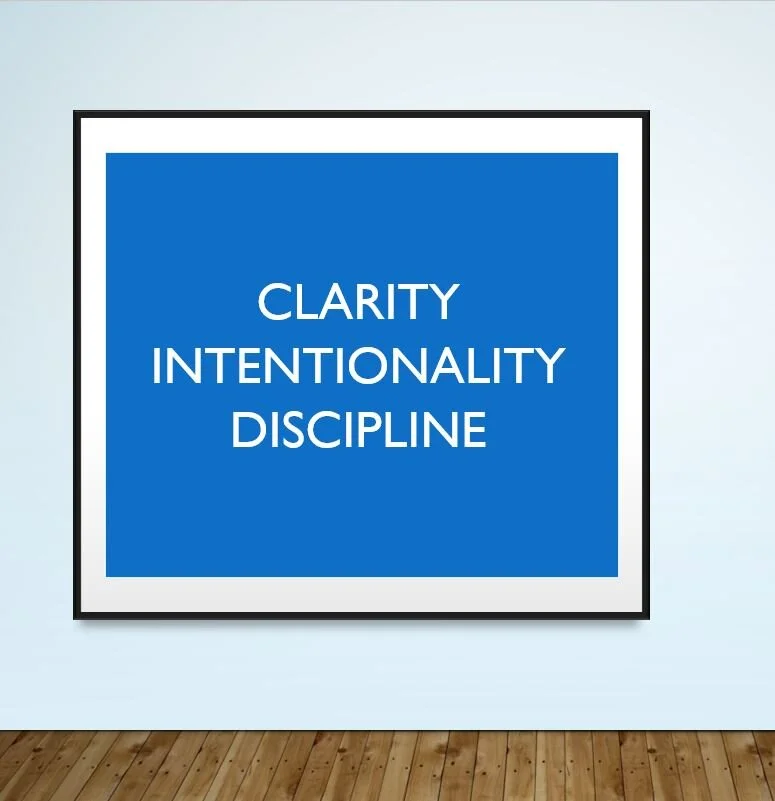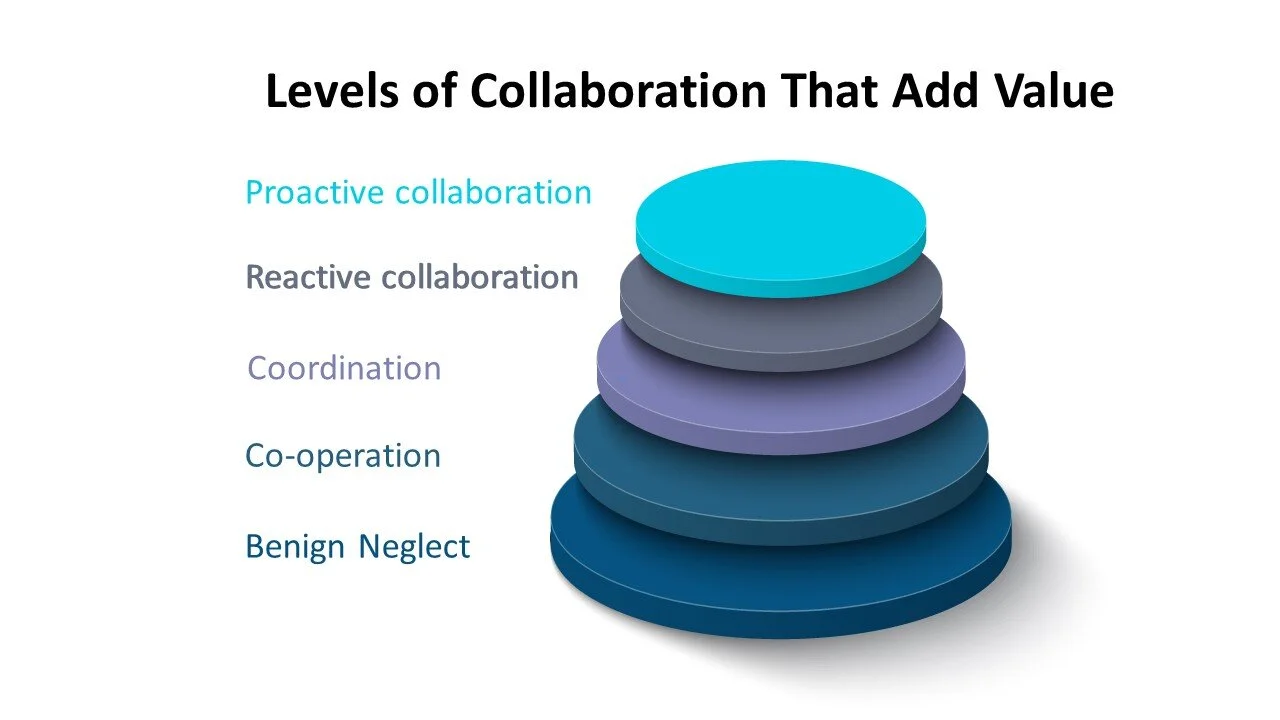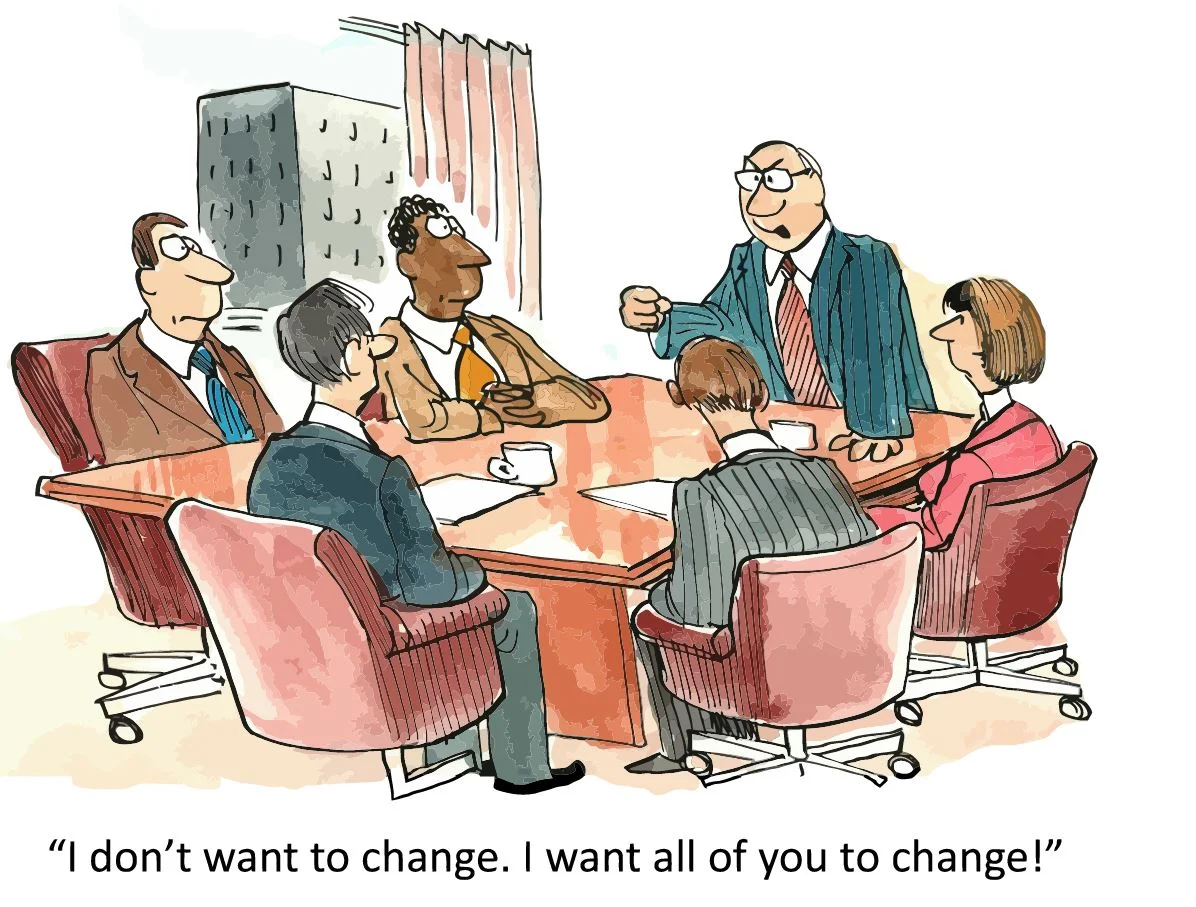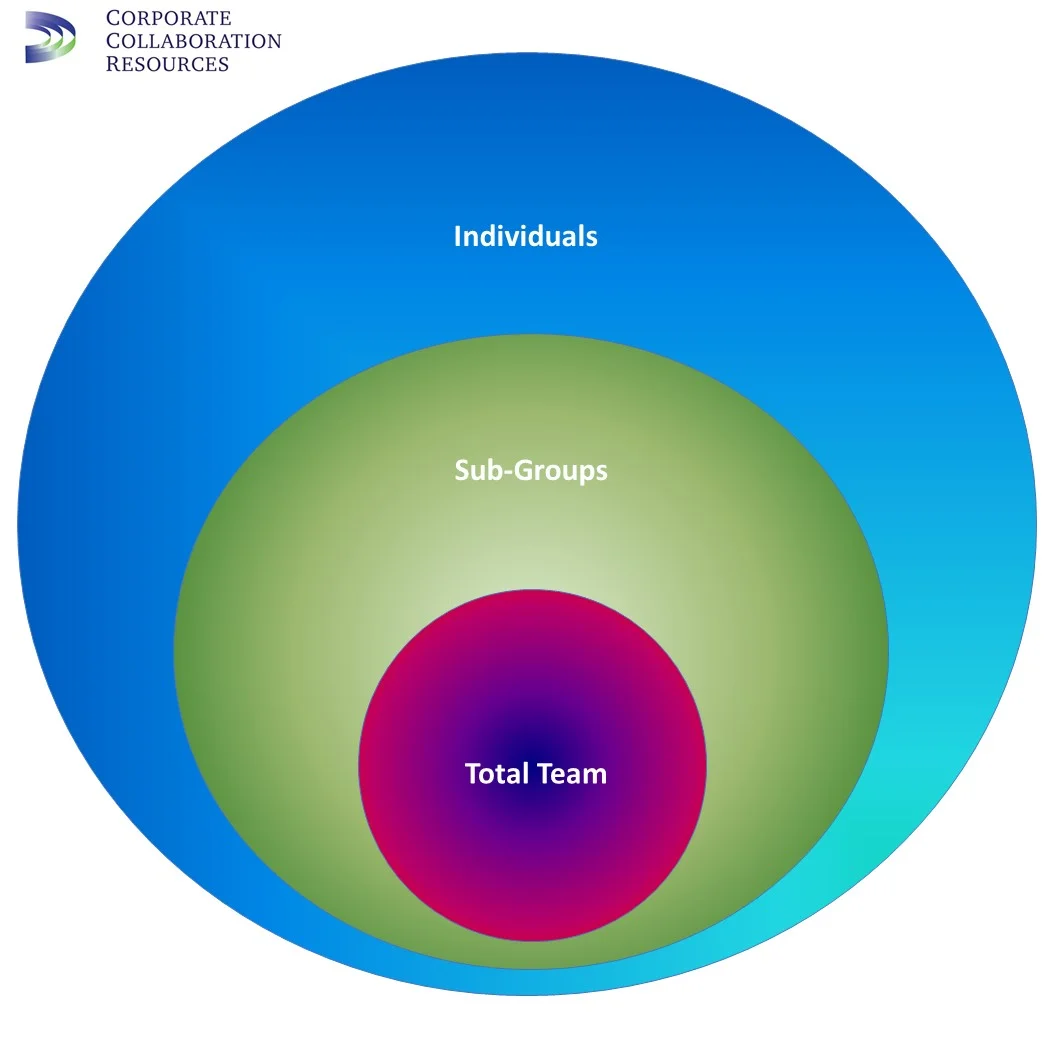What I learned through my research was that my well-intended alignment efforts weren’t helping collaboration. It wasn’t just about shared goals, I realized. To get more intentional collaboration, teams needed alignment. Then the Three Imperatives of Effective Collaboration emerged.
Read MoreNeither “Real Team” nor size nor description of your team or group matters. Whether you’re called a council, a committee, or a board the same thinking about units of collaboration applies. Focus on the work needing collaboration and get on with it.
Read MoreThe levels idea had its genesis when I was working with a group of senior Mars HR folks in Europe. I wanted to see how people spoke about the ways they were working together. I looked at the data I’d gathered while and a pattern emerged. I organized my insights into what I now label the Levels of Collaboration. Here’s how to use the Levels to create value for your team.
Read MoreTeam dysfunction? Spoiler alert: The manager is always the problem.
Read MoreTypical team building can be fun. If nothing else it offers a break from the same-old, same-old back at the office or factory. But fostering “teaminess”, that shallow, short-lived version of team spirit, will not make your team better. If you want a stronger team work together on things that matter.
Read MoreTuckman’s Stages of Team Development may be useful for psychologically analyzing conflict, but not for helping a team get things done.. His stages are based on research that is no longer relevant, especially in the workplace. What’s more helpful: “What are we going to do?” or “What stage are we in?”
Read MoreOne startling discovery was that relationship building, despite all the time and money teams and organizations devote to it, doesn’t ignite collaboration
Read MoreInvolve the total team in a project only when involving everyone will create more value than having it done by a small group or by an individual. Stated the other way around, if a small group or an individual can do a piece of work effectively and efficiently, why bother involving the total team? Collaboration in large groups is slow, complex and prone to unproductive conflict. That’s why we save total team collaboration for instances where the payoff is clearly worth the added challenges involving more people.
Read MoreHow can we clearly differentiate among the varying degrees of collaboration? And how can we apply that knowledge to getting work done collaboratively? This Blogpost addresses:
The risk of burn out from what some are calling over-collaboration
Understanding that there are levels or degrees of collaboration leads to finding you need less collaboration that you thought.
How understanding these levels help you decide how to dedicate more time to the collaboration that matters and less time to the collaboration that doesn’t
Gets you to fewer meetings, fewer random emails or texts in the middle of the night
There’s a common fallacy that shared goals is how you do that. Goals motivate people, right? So shouldn’t it make sense that goals would do the same for people collaborating? I learned at Mars that it’s not so. Goals matter, but they don’t motivate collaboration.
Read MoreWe decided to tap into people’s motivational wiring in an unexpected way to get the opposite of what they normally preferred. Once we embraced this mind hack, we were able to build the framework and tools that did just this and enabled teams to get consistently better results.
Read MoreWe talk about collaboration as if it were one thing that we all understand in the same way. For this discussion, there are three points I’ll make about degrees of teamwork: most of what we call teamwork is some form of helpfulness; helpfulness is good, but it’s not enough and; what we need is more intentional collaboration.
Read MoreWe’ve all seen them. Posters of rowing teams pulling together silhouetted against a golden sunset. Quotes from legendary coaches. Platitudes about teamwork outlined in a company’s “Core Values.” All of this amounts to lip service without any true action to support it.
Read MoreIn a previous episode of my podcast, Lessons from Mars, I mentioned that I became uneasy with the existing approaches to team development. I’d been working with Tuckman’s 4 Stages of Team Development - a standard in team development for decades.
Tuckman’s stages, which include Forming, Storming, Norming, and Performing, offer useful insights into how groups form and mature as teams. However, as I dug deeper into the Four Stages as part of a team charged with creating a team development module for a Mars Management Development program, I found there were three key flaws with Tuckman’s model as it was applied to the corporate world.
Read MoreMy book is titled “Lessons from Mars”, and that is truly what it contains. Over 17 years as an associate at Mars, Inc., I was able to learn about teams hands-on and observe the effects of collaboration and team building strategies.
The culture at Mars was integral to my success in many ways, but three specific aspects made it the ideal environment for my research on team effectiveness.
I’ve said many times that my 17 years as an associate at Mars, Inc. was essential to the collaboration framework my colleagues and I developed and which led to the subsequent publication of my aptly titled book, Lessons from Mars. Serving as an internal effectiveness consultant gave me the opportunity to learn about Mars and its associates from the inside allowing me to truly understand the keys to effective collaboration.
Read MoreThe more we understand what value a meeting is meant to create, and which work actually requires collaborative effort, the better we can allocate our most valuable resources – our time, energy and enthusiasm.
Read MoreI was working on a large-scale org design project at Mars, Inc. a few years ago. The change management leader for this massive initiative asked me to develop an approach to help teams to navigate the changes they would be experiencing as part of the reorg. I had some good ideas (I’ll share those in an upcoming post) that I quickly committed to paper.
Read MoreAlmost every team I have worked with over the past 10 years has had to conduct at least part of its business virtually. I’ve seen teams do excellent work virtually and experience smooth sailing. Others never quite learn the ropes and lose their way.
Read MoreI’ve posted a couple of articles about trust and courage in teams in my blog, Teaming With Ideas. I connect my thinking about those two subjects to what’s become a justifiably hot topic in the realm of collaboration: psychological safety.
Read More



















